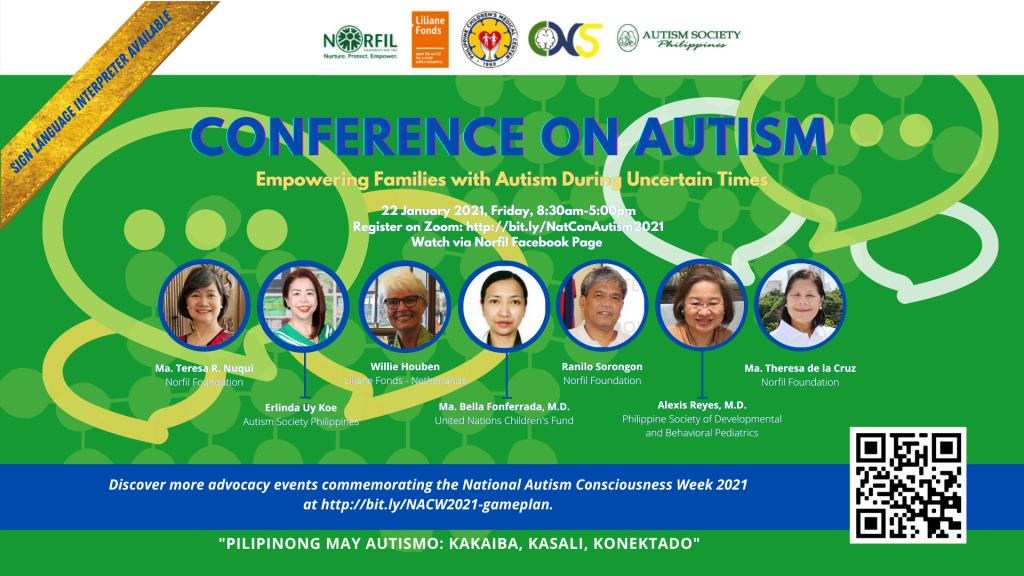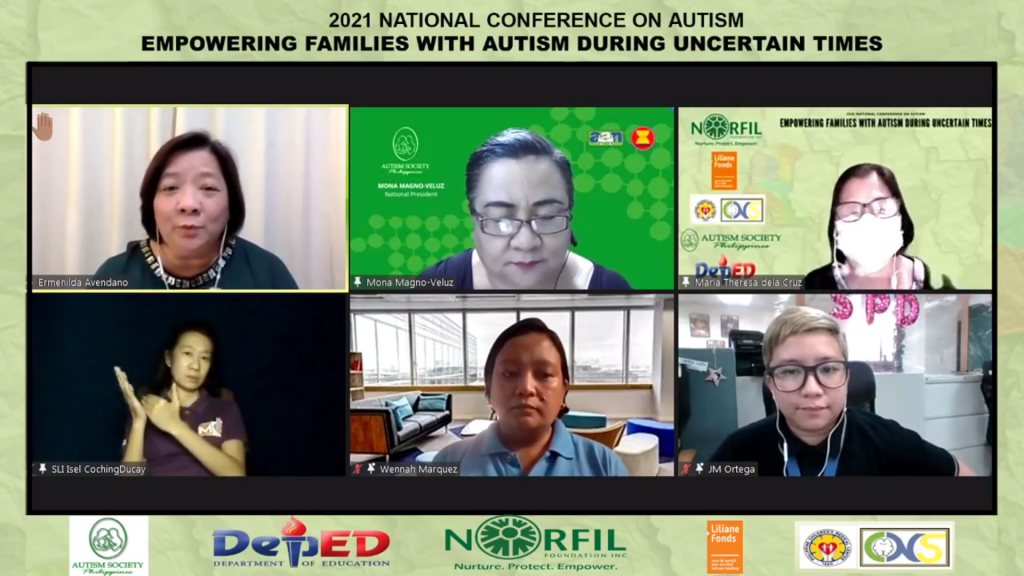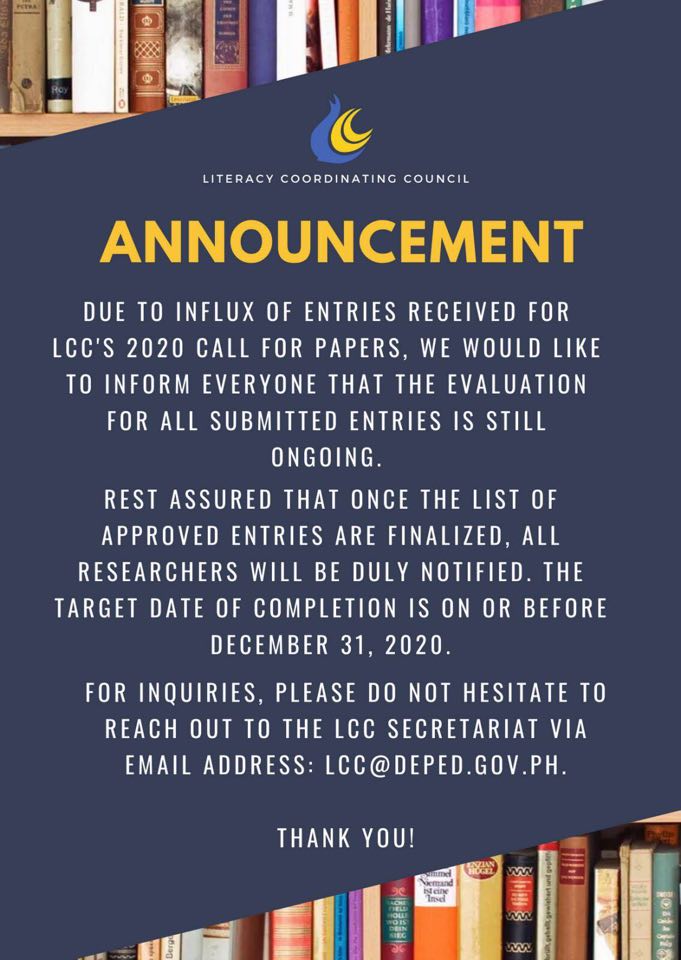The Cebuana Lhuillier Foundation, Inc. held the Resilienserye: Alternative Learning in the New Normal webinar in partnership with the Department of Education through the Alternative Learning System on March 18, 2021, from 4:30 PM to 5:30 PM via Zoom Teleconference and aired through Facebook Live.
The said webinar was chaired by Cebuana Lhuillier Foundation, Inc. Executive Director Jonathan D. Batangan with DepEd Legislative Affairs, External Partnerships, and Project Management Service Undersecretary Tonisito Umali and Alternative Learning System Assistant Secretary G.H. Ambat as the guest speakers. The program aims to discuss the importance of blended learning for the Alternative Learning System during the COVID-19 pandemic. It also intends to discuss the education programs for out-of-school youths and how the ALS program implementations continue in these trying times.
The teleconference started after the welcoming remarks of CLFI Executive Director Jonathan D. Batangan and his introduction to ALS Asec. G.H. Ambat as the first speaker.
ALS Assistant Secretary G.H. Ambat has presented updates on the Department of Education’s programs through the Alternative Learning System. The DepEd-ALS was able to open the SY 2020-2021 last October 5 with Basic Education Learning Continuity Plan in the table. The BE-LCP hopes to strengthen the inclusion of learning modalities, enrich the curriculum to make it relevant to learners, and provide technological upgrades and innovations in learning resources and platforms. Some of the highlights of Asec. G.H. Ambat’s presentation includes the launch of the ICT4ALS website in April 2020 in partnership with UNICEF Philippines, the rollout of the Opportunity 2.0 Project in August 2020 through the help of USAID, and the launch of DepEd ALS TV in October 2020. Her final presentation contains the ALS 2.0 Learning Continuity Highlights in partnership with Congress, House of Representatives, and Senate of the Philippines wherein she discussed the ALS Law (RA 15110), ALS 2.0 program delivery, partnerships, challenges, and solutions. Asec. G.H. Ambat concluded her presentation by sharing the ALS Vision moving forward and their hope to give out-of-school youths a chance for a better education.

Shortly after Asec. G.H Ambat’s presentation, CLFI Executive Director Jonathan D. Batangan introduced DepEd Legislative Affairs, External Partnerships, and Project Management Service Undersecretary Tonisito Umali to tackle the Department of Education partnerships. Usec. Tonisito Umali shared his thoughts on the decreasing rate of Alternative Learning System enrollees for SY 2020-2021 and explained the DepEd Mandate on Non-Formal Delivery of Education. He also provided exciting insights on the real meaning of quality education and the need to include it in the DepEd mandate. At the end of his presentation, Usec. Umali has invited private companies and organizations for a partnership to help in their advocacy of providing quality education to ALS enrollees.

The webinar highlights include the question and answer portion wherein audiences had the chance to ask questions to the speakers. Some questions that were answered by Asec. Ambat and Usec. Umali involves the topic of the inclusivity of Indigenous People through the Indigenous People Education Program found in Section 8 of the ALS Act and ensuring ALS will reach the IP community through working with the Divisions Office. They also responded to a question regarding the Basic Literacy Program for Indigenous People and career paths for mobile teachers or those teaching in the ALS Program.
Asec. G.H. Ambat has also mentioned working with Usec. Diosdado M. San Antonio regarding a Joint Memorandum Circular on the Accreditation and Equivalency (A&E) Test. She clarified that completers of SY 2019-2020 and students who are in ALS earlier have a chance to pass their presentation portfolio which contains work samples for learning, showing their Mastery of Competencies and result of Functional Literacy until June this year.

The Resilienserye: Alternative Learning in the New Normal webinar of CLFI concluded with an inspirational message from both ALS Asec. G.H. Ambat and DepEd Usec. Tonisito Umali. The CLFI webinar will provide more insights to the Literacy Coordinating Council in delivering a valuable contribution to the DepEd-ALS programs through developing policy recommendations to address the literacy needs and inclusivity of all types of learners not just in the Philippines, but globally.
The Literacy Coordinating Council is one with the Department of Education and Cebuana Lhuillier Foundation, Inc. in intensifying the implementation of the Alternative Learning System for the benefit of out-of-school children, youth, and adults, as well as in universalizing literacy in the country.
Jonnabel D. Escartin



































